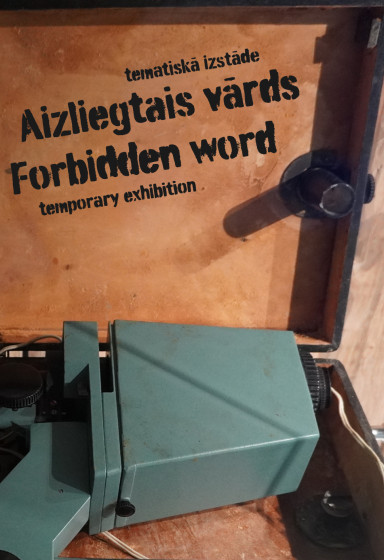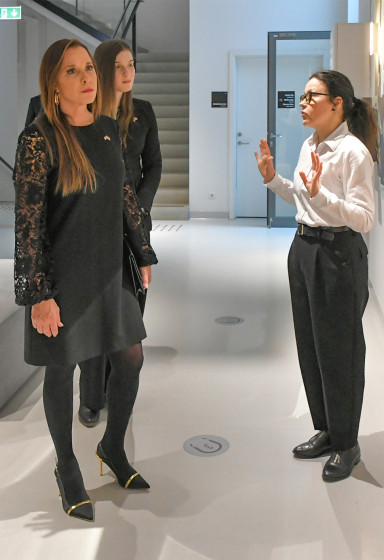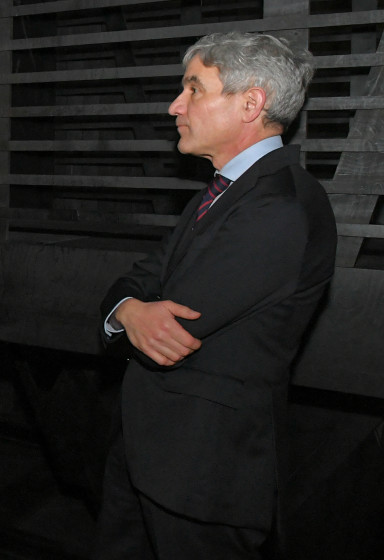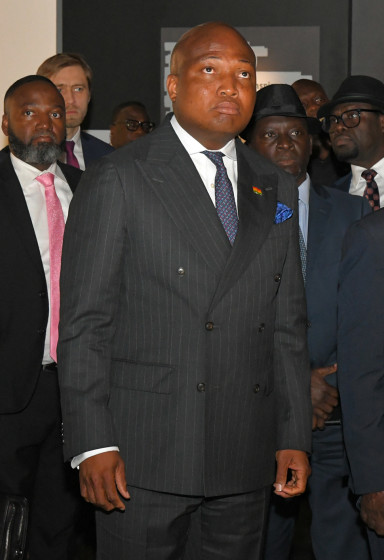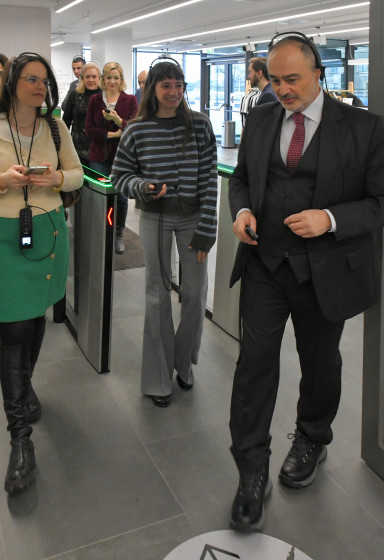Donate to Museum
Each donation helps to ensure the Museum's activities, allowing it to function and provide information for people from all over the world.
The Museum is grateful to each donor and invites everyone to contribute.
The Latvian Occupation Museum’s Response to the Conclusions Reached by a Workshop Organized by the Municipality of Zedelgem, 26-27 November 2021

As a legitimate partner in discussions of events of the Soviet and Nazi occupation periods in Latvia and the future of the monument “The Latvian Beehive for Freedom”, the Museum of the Occupation of Latvia herewith offers a brief summary of its views of the workshop’s organization and conclusions.
The Museum notes that the panel of experts at the workshop was not inclusive in its composition and its conclusions do not reflect a full range of relevant views on the issues discussed. Due to the organizers’ position, the Museum could not send its representatives to the workshop – even as observers. Moreover, not one historian from Latvia could take part in the workshop. Regarding the two participating Latvian representatives, one is affiliated with Social Sciences Department of the University of Latvia, while the other with the University’s Institute of Philosophy and Sociology.
The workshop’s conclusions touch the issue of Latvian soldiers in the Zedelgem POW camp in 1945-1946. They express prejudiced, unsubstantiated assertions including gross inaccuracies and omissions about important events during the Second World War, both across Europe and in Latvia.
- The conclusions ignore the role of the Hitler-Stalin Pact of 23 August 1939, the collusion of and subsequent attack by Nazi Germany and the Soviet Union on Poland in September 1939, which launched World War II.
- The workshop’s conclusions and statements fail to mention that nearly 200,000 Latvian citizens were illegally enlisted into the armed forces of both the Soviet Union and Nazi Germany.
- The crimes of the Soviet occupation regime and the repressive character of communist totalitarianism are linked to the period of Stalinism, which lasted only nine years of the 47-year occupation of Latvia. This opinion is in direct contradiction with the official position of the Latvian state, the historical memory of the Latvian people, and the position set forth in the resolutions of the European Parliament.
- Inadequate consideration is given to the specific experience of Estonia, Latvia, and Lithuania during and after the Second World War, their occupation by two totalitarian regimes, which committed serious crimes against the states and peoples of these countries. The Baltic states were occupied by the Soviet Union from 1940–1941 and 1945–1991 and by Nazi Germany from 1941 to 1944/45.
- The panelists rely on the concept of collective guilt, which assigns to 11,700 Latvian POWs at Zedelgem collective responsibility for war crimes or crimes of the Holocaust, in which a few dozen of those imprisoned in the camp may have been involved. This approach, however, is not applied by the workshop experts to prisoners of other nationalities in Zedelgem.
- The conclusions dehumanize the Latvian prisoners and deprive them of the right to bear individual responsibility for their actions and motives, as well as the right to human dignity and remembrance.
- Certain parallels emerge between positions of the workshop’s experts and policies implemented by the Soviet authorities, which persecuted and/or discriminated against former Latvian soldiers and their family members for their entire lives. These are fundamentally at odds with the approach taken by Western democracies.
- The experts failed to consider the overall experience and fate of many, many millions of POWs in Europe during and after the war. They did not use the opportunity to analyze the broader context of the captivity of the POW’s in Zedelgem and their gradual return to normalcy after the war’s end. Instead, a clear hierarchy of victims was formed, where a person’s fate and worth was essentially determined by which of the warring sides he belonged to.
The Museum of the Occupation of Latvia values the work – spanning three decades –of researchers of Latvian and other academic institutions on the occupation period, war crimes and Holocaust in Latvia. For its part, the Museum will continue its research activities and the organization of public events involving various specialists so as to promote a common understanding of problems pertaining to the Second World War in Latvia as well as internationally.
The Museum of the Occupation of Latvia is a state-accredited private museum, founded in 1993. It is maintained and managed by the Latvian Occupation Museum Association, a public service organization. The aim of the Museum is to introduce visitors to evidence-based history of the occupation period, events, and consequences. The Museum is primarily maintained by private donations.
